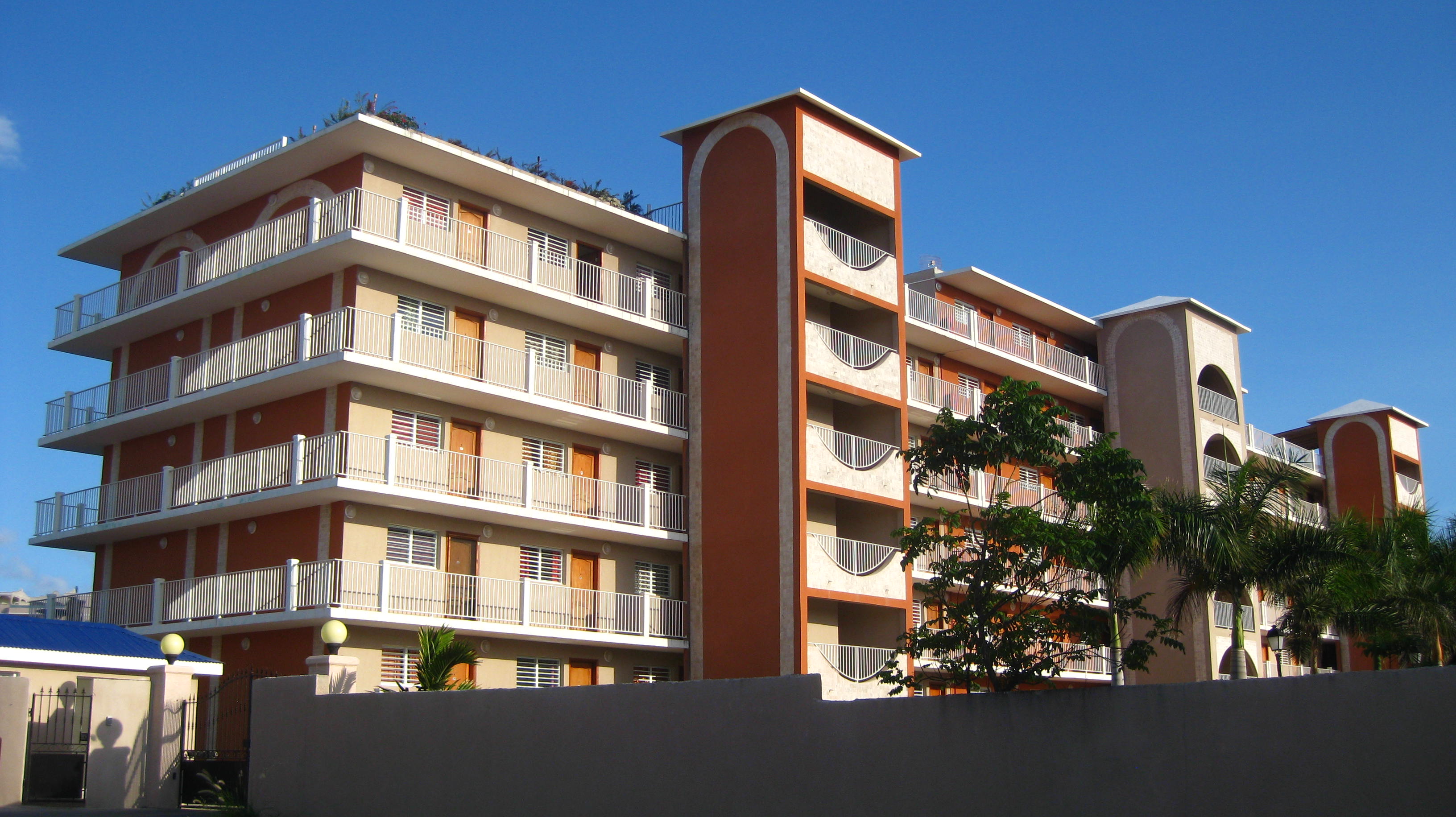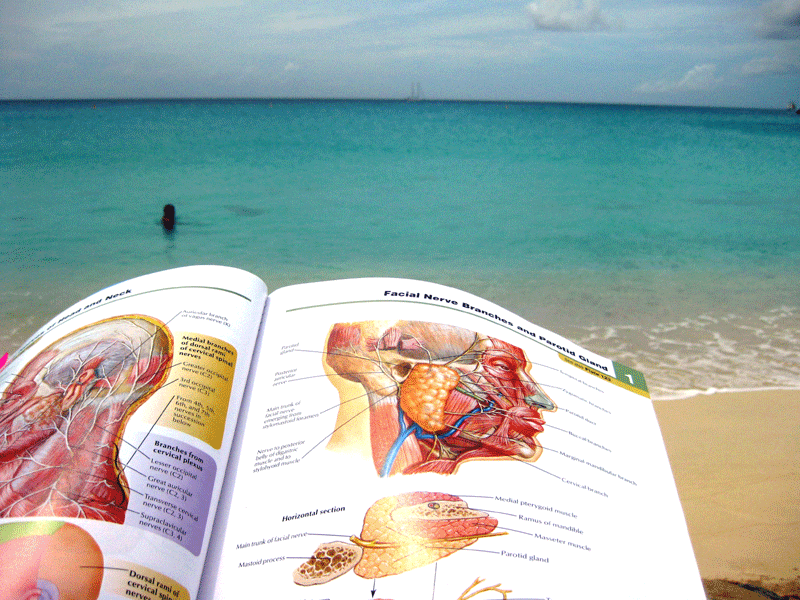My Expenses
**Updated 5/1/2014**
Medical school is an expensive investment especially in the United States as well as the top Caribbean medical schools, and like all schools, tuition is subject to change every year. This is definitely true at AUC where tuition increases every September. When I started Basic Sciences in 2009, the tuition was as follows:
- Semesters 1-5: $16,000/semester –> $16,000 x 5 = $80,000
- Semesters 6-9: $17700/semester –> $17,700 x 4 = $70,800
- Semester 9.5: $8850
- Total: $80,000 + $70,800 + $8850 = $150,650
By 2013 when I graduated, the tuition was:
- Semesters 1-5: $18,975/semester –> $18,975 x 5 = $94,875
- Semesters 6-9: $21,250/semester –> $21,250 x 4 = $85,000
- Semester 9.5: $10,625
- Total: $94,875 + $85,000 + $10,625 = $190,500
That’s quite a lot of money and that is just for tuition alone. If you add living expenses to the equation, the cost becomes significantly more. I did not have this much money in the bank, and since I’ve never invested in anything big like a house before, I did not have much to show for my credit. Luckily, AUC is one of the four offshore medical schools in the Caribbean that the US government has approved to offer US federal student loans, and so I was able to borrow everything I needed to live and study comfortably with these loans. US federal loans is great in that the government lets you borrow up to the full cost of attendance for medical school. But because doctors are expected to make high income in the future, our interest rates are also really high, ranging from 6.55% to 8.25%, depending on the type of federal loan you borrow.
Calculating how much I would be borrowing, and then knowing that I would have to pay back all this money in full after I graduate was stressful. How would I ever pay back this debt if I fail out of medical school? Knowing the costs of my education made me extra motivated to do well and not fail in becoming a doctor.
By the time I graduated, I had borrowed $276,877.79 from a mix of Stafford Loans and Grad PLUS Loans (two types of US federal loans that the government offers). However, because of capitalized accrued interest, this became $316,602.64 by the time I actually started repaying back my loans. According to AUC, in 2011, the average AUC graduate borrows $102,500 from Stafford Loans and $212,350 from Grad PLUS Loans, giving an average total loan of $314,850. If this is the amount before accrued interest is factored in, then I guess I’ve done pretty well in saving some money. Now, it’s payback time.
For those of you going to the island, how much should you expect from living expenses? Here are some links to help you:














Hi Benji,
At the end you put this update:
The average AUC graduate borrows $102,500 from Stafford Loans.
The average AUC graduate borrows $212,350 from Grad PLUS Loans.
Is that saying the average student borrowed both amounts or one or the other?
Thanks
Hi Rachel,
Most students will borrow from both types of loans (I certainly did), but I guess it’s not improbable to think that someone would just borrow from one.
Benji
Great blog Benji, and thanks for all the good information. My question is, is the living expenses from the various loans large enough to support someone if they chose to spend the entire duration of their studies on the island, including Summers when school is not in session and there is not any check coming from the financial aid office?
Hi Mohamed, you will receive a refund check every two semesters during Basic Sciences and every semester during clinicals. The only time you don’t get a check is the few months of time between Basic Sciences and Clinical Sciences, as well as the time between graduation and starting residency, so during these times, you’ll have to borrow more money the semester before to keep you afloat financially. The max amount you can borrow is more than enough to pay for living expenses and tuition. Also, there are no long summer breaks. School is always in session. You get 2 week breaks in between semesters, however.
Benji
Hi Benji,
I had a question about FA, from the second semester onward, after AUC takes out tuition and insurance, what is the average check amount given back to you if you were to take out the maximum amount of loans?
Hi Hoang,
Whenever I took out full loans, I’ve usually gotten back about $15,000 per semester, which is more than enough to live by. Best of luck!
Benji
Thanks for the fast reply Benji!
Also, you state that insurance is about $325 per semester. Is the cost the same for Nagico on the island and Bollinger during clinicals?
Hoang
Hi Hoang,
I’m not really sure. I’d contact the school for the most updated info.
Benji
Benji,
Thanks for putting out all of this information. It was extremely helpful in making a budget for this fall at AUC!
Hey William,
Anytime! I wish you the best of luck this fall!
Benji
Would like to echo other people on this website. Thank you very much for putting this information. I got accepted into AUC for the Fall of 2013. I do have some remaining questions and I do not know where I can submit them on this website?
Again, thank you for your hard work and being an outstanding colleague.
Hi Tariq! Congratulations on your acceptance to AUC! The best way to reach me with questions is to leave comments on my posts, wherever they are relevant. I’ll try my best to answer them. Best of luck on the preparation for your journey down to the island!
Benji
hey Benji,
I was just wondering, how did you make the time during the time you finished studying sciences at AU C and returned him to take the step up until the time you started clinicals work financially. From my understanding during that time there ar eno loans being dispersed for living expenses. Are there loans available to take out for that time?
Thanks!
Allegra
During the semester off between Basic Sciences and start of clinicals, financial aid is not dispersed. Because of this, you’ll have to borrow more the semester before you take off to make sure you’re covered financially until you start getting loans again. I just borrowed the full amount the semester before and it was enough to cover me.
Hello, you are our guide , our lighthouse in the storm! Do you have to take semester off after basic sciences or can you take the exam right after your 5th semester? Thank you in advance for your reply.
Hi Lani, 🙂
You don’t have to take a semester off after Basic Sciences, but if you do, it’s considered part of the school curriculum, so you won’t have to worry it being considered a “Leave of Absence.” For those students who score very well on the Comp exam at the end of fifth semester, they may decide to take the Step 1 immediately after leaving the island because they feel they are ready, which is great, since that means they also get to choose clinical rotation locations first. However, most people do opt to take the exam within 1-3 months after Basic Sciences.
Benji
Hi Benji,
Thank you for such a great post and you seem to reply very diligently to everyone’s post so I won’t hesitate to ask you some questions.
I’m trying to attend MUA or Avalon starting this fall, I cannot do the big 3 since none of them really have a pre med program and I am a business major without any science pre Reqs. With that said as you know these schools don’t have fed loans, now what is my best option to fund my med school dream? Where can I turn to for the best possible loans with the least possible damage (interest). Please help me out!!
Thank you so much.
Hi Khan, if you are a US citizen, I personally would recommend going to an in-state school to do pre-med post-bacc, then try to apply to a US school first, and then a Big 3 Caribbean school if you don’t get accepted. I’ve heard of stories where schools that don’t have federal loans may kick you out if you don’t get approved for private loans, even if that means you’re already half-way through your training. So try US first, then Big 3 with federal loans, and if all that fails, then consider schools like MUA or Avalon. It will make your life a lot easier. That would be my best advise to you. Best of luck.
Benji
Hi Benji!
First and foremost, as stated by everyone, this blog has truly inspired me to both apply to AUC as well as informed me on all the in’s, out’s and nooks and crannies of the school so thank you so much for such a thorough resource and personal account!
My question is in regards to housing- I’ve been looking at what AUC’s website offered in terms of housing and there seem to be some reasonably priced spaces- just thinking ahead, how early should one look for off-campus housing for their subsequent terms on the island? Also, is it possible for one to stay on campus for the duration of their time on the island? Thank you again Benji!
One more question I just realized I have: Are there other ways for students to get tuition lowered (outside for scholarships)?
Thanks Again!
-Garnette
Hi Garnette,
Thanks for visiting my site! There are definitely a lot of options for housing around campus, and if you get a car, there’s even more options. I lived on campus in the dorms my first semester and I didn’t start looking for housing until after my second block exams (about 6 weeks into the semester), and it was enough time. Of course, there’s going to be even more choices if you start looking earlier, but that’s true of almost anything in life. It is possible to spend more than one semester in the dorms, but the priority is given to first semester students, fifth semester students, and students who have conditions that require them to stay on campus. Most people move out of the dorms after one semester. As for tuition, it is set. There are certainly scholarships you can inquire about, and I know people who do get scholarships, but generally the tuition is set, and increases each year, like any other school.
Best of luck Garnette!
Benji
Dude, thank you very much for creating this blog, i am currently attending towson university , i am science major,i was very disappointed with my self for not getting high enough gpa to apply for US medical school, my current cum GPA is 3.25 and have two semester left, that will bring it to at least cum gpa of 3.40. this summer i am studying for MCATs, hopefully i will be able to get score > 25. i wasn’t considering caribbean medical school, until i read your blog, because every person i talked to said,” it is impossible to find residency” or ” other people who will work with you, will look at you as not highly qualified”. i went through the AUC website and talked to recruiter, i felt like this is the place i belong. what are my chances of getting accepted in AUC. i am plan on applying on jan 2014 for sept semester 2014, is that enough time.
thanks.
shah.
Hi Shah, if you score over 25, I think your chances should be good. If you apply in January, it should be enough time for both May and September semesters. You could perhaps consider starting early in May! Best of luck!
Hey Benji,
I will be attending AUC in September 2014 and am so excited to follow in your footsteps. My question is regarding Federal Loans. I am a 23 year non-traditional and have been working as a teacher for the past year and a half, thus I would have had a income calculated into my EFC as opposed to traditional students heading straight in. Will this disqualify me for either the Federal Direct Stafford Loans or the Federal Grad PLUS loans? I was looking at the tuition, and if I only qualify for the Federal Stafford Loans, it would not be enough to cover everything plus living expenses. Is there a separate application process for the PLUS loans (not on the FAFSA site/form)? How do you go about attaining a PLUS loan?
Thanks and Good Luck in Residency Doc!
Hi Thomas,
Thanks for the good wishes! Hopefully I’ll find out soon where I match into family medicine residency. As for loans, I know many people who worked before medical school, and I haven’t heard of anyone of them having any issues securing enough loans. Don’t worry, you will not be disqualified for loans. There are four things you need to fill out: FAFSA, Master Promissory Note (MPN) for Stafford loan, Master Promissory Note (MPN) for PLUS loans, and Request for Direct Plus Loans (credit check). During Basic Sciences, you fill out FAFSA once per year, and the two MPN’s and the Request for Direct Plus Loans every two semesters. Afterwards, you will receive your financial aid award letter, which you sign and return to the AUC Financial Aid Office. Whatever amount you borrow, the tuition will automatically be deducted, and you’ll receive the leftover money (for living expenses) via direct deposit into your bank account (or check if you prefer). You should get all of this information from AUC’s Financial Aid department as the semester approaches. Best of luck!
Benji
Hi Benji! I plan to begin class at AUC this September. I cannot begin to describe how incredibly helpful your blog has been in reinforcing my decision. Regarding your student loan refund check, I was wondering how soon it was disbursed after registering for classes? I’m taking out a rather large bank loan to cover the off campus housing security deposit, and I would like to pay this back immediately.
Thanks!
Crystal
Hi Crystal,
Thanks for reading my blog and congratulations on your acceptance to AUC! You’ll get your loan refund back via direct deposit (or check if you choose) usually the Thursday or Friday before classes start. Best of luck!
Benji
Is it possible to pay tuition using a credit card?
I guess it could be possible if there are no limits on your credit card, but why would you want to do that?
Hi Benji,
My daughter has GPA 3.35 biology major, mcat 29, MS in medical science with about 3.6 gpa (UNT) and not getting admission into US medical schools. Basically Asians are competing with Asians and compared to other Asian applicants, it looks like her gpa and mcat scores are low. So, she is planning to attend either St. Georges or AUC in May 2016. I am worried about the residency availability in 2019. I read somewhere that it will be difficult to obtain a residency in US or US might even stop FMG residencies. What is your opinion? Is there any equivalency test required as FMG to get residency in US. Thanks.
Dear Roy,
Your daughter has extremely strong stats. Does she have to check mark that she is “Asian” on the applications? That is unfair because medical applicants shouldn’t be judged based on their race.
Dr. Benji,
First, I want to reiterate what others have said: amazing website, extremely useful information!
My finance and I are reading through each and every one of your blogs — and so far, we couldn’t imagine doing all of this without your guidance.
Second, and to my point, we’ve received conflicting information from student.gov, AUC Financial Aid, and others about the total amount of loans eligible (to include Subsidized Stafford and Grad Plus).
My understanding is that the max amount we are eligible to receive from Federal Subsidized loans is $138,000 (total, over 4 years), and $206,640 (total, @ $51,660/yr over 4 years) from Grad Plus.
Total: $344,640
However, the AUC Financial Aid Planning Guide lists the max amount of aid from Federal unsubsidized loans as $10,250, or $20,500 per year. Both the AUC planning guide and the Federal student aid website state that subsidized loans are no longer given for graduate study as of 2012. At $20,500 (unsubsidized), the max amount over 4 years is $82,000 — and at $51,660 (grad plus), the max amount over 4 years is $206,640.
Total: $288,640
Where am I going wrong here? Is the max amount $138,000 or is it $82,000?
Any insight you might have would be extremely helpful. I’ve contacted my advisor and the financial aid office but no reply yet. Hopefully, you can help to clarify some of this for me.
Thank you,
Stephen